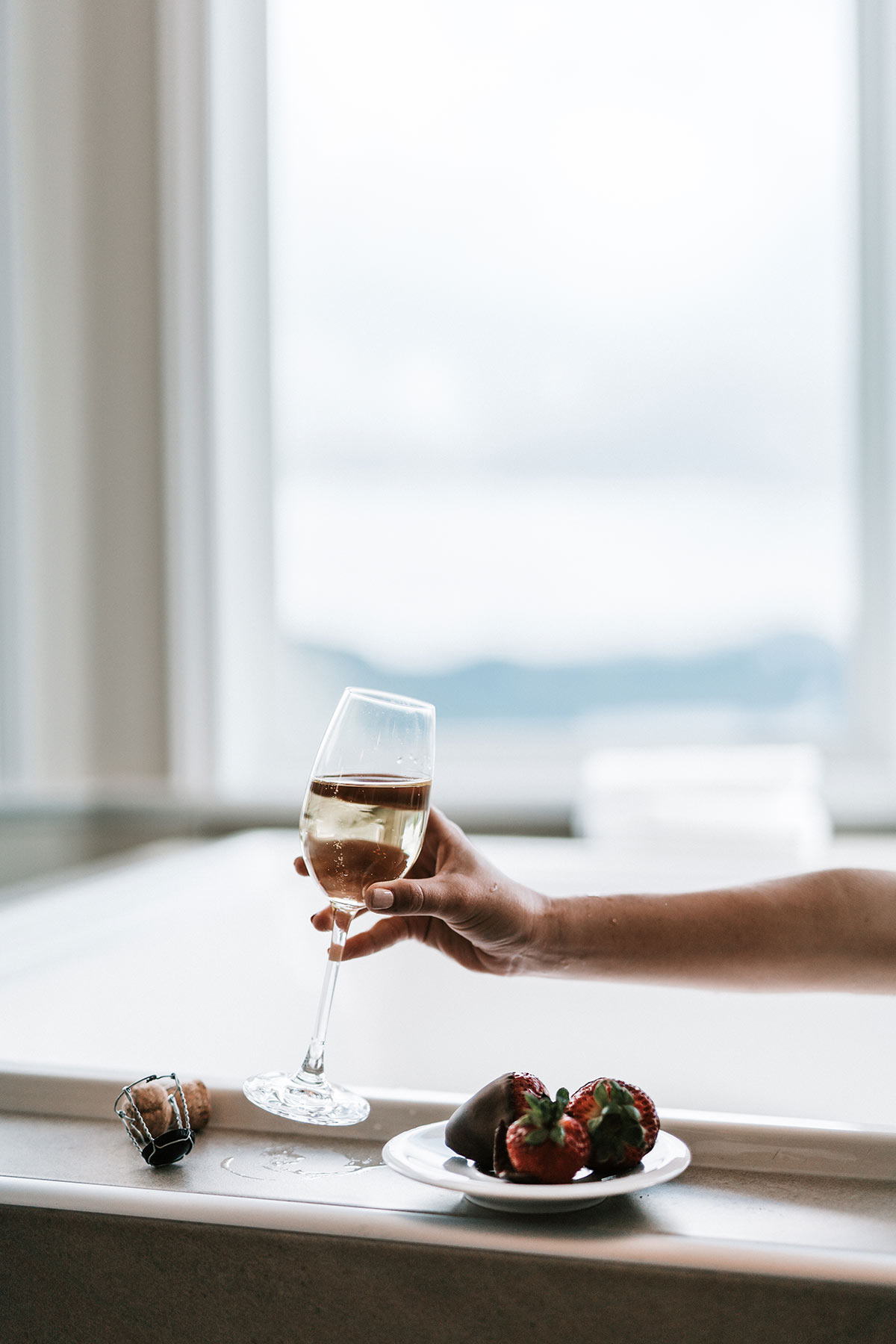7 Tips for Storing Wine Correctly
July 24, 2020
Store it at the correct temperature
When it comes to preserving wine, the temperature is key. Unsuitably warm or cold temperatures can affect the quality and flavour of the wine and cause it to spoil. The correct temperature differs depending on the type of wine, but most experts recommend 13 degrees Celsius or 55 degrees Fahrenheit for short as well as long-term storage. If you are unsure of the best temperature for wine or the instructions are unclear, you may be able to contact the manufacturer for further information. As a general rule, wine temperature should never fall below -4 degrees Celsius or 25 degrees Fahrenheit or be kept above 20 degrees Celsius or 68 degrees Fahrenheit. This can cause it to freeze or speed up the ageing process which destroys vital compounds responsible for taste and smell.Store it horizontally
As well as storing wine at the correct temperature, you must also store it at the correct angle. Wine bottles with corks must be stored horizontally in a wine rack or cellar. This is why most wine racks and coolers have been designed to store wine bottles horizontally. By doing so, the cork will retain its moisture which is key for long-term storage. A dried cork can lead to seepage and premature ageing, affecting the taste and flavour of the wine. Vertical storage is a great option for sparkling wine due to due to increased air pressure within the bottle of wine you are planning to drink soon. Wine bottles with screw caps can be stored horizontally or vertically but storing your entire wine collection horizontally can allow you to capitalize on storage space.Shield it from intense light
Whether you are storing wine for several months or just a couple of days, you must aim to keep it shielded from intense light as much as possible. Direct sunlight can disrupt the flavour of the wine and damage its aromas. This is due to harsh UV rays triggering amino acids containing sulphur to oxidize. If your wine tastes a little funny and has been stored in direct sunlight, it may have been light-struck. This is especially important for white wine in clear bottles. It is much more likely to be affected by light than wine stored in dark or tinted bottles with less protective shielding. To preserve the taste of your wine, store it in a dark, dry place with limited sunlight. If you are unable to do so, try keeping it inside a box or lightly wrapped in cloth. A cabinet is another great storage option but must be solid with UV-resistant doors. As well as light, you should also aim to avoid storing your wine near sources of vibration. This includes washing machines, speakers, and exercise areas. This can disturb sediments found in the bottle and speed up the ageing process.Familiarise yourself with expiration dates
If you have amassed an impressive wine collection over the years, you must familiarise yourself with the expiration date of each bottle regularly. This can prevent you from wasting a meaningful or expensive bottle of wine and allow you to expand upon your existing collection as time goes on. While some wines are designed to age, this is not necessarily the case for all wines and most bottles are unlikely to taste great after one to two years. To be safe, you should consume all wine within a relatively short period of time. There are, however, select varieties of wine that improve with age. If this is what you are looking for, a reputable wine vendor should be able to point you in the right direction of a bottle designed for long-term storage with a highly specific balance of tannins and sugars.Only store it in the fridge on a short-term basis
Storing wine in the fridge is fine on a short-term basis but vibrations can end up causing damage and exposing it to some unpleasant odours over time. This can alter its chemical structure and disrupt the sediment found at the bottom of the bottle. To prevent this from occurring, store wine away from large household appliances and only store it in the fridge if you are planning to drink it soon. Opened wine should also only remain in the fridge for up to three days. If you own an air pump, you may be able to remove excess air and reseal the bottle to prolong its lifespan. Red wine should retain its taste and flavour for a few days once removed from the fridge. You must familiarise yourself with the different storage requirements for red and white wine.Don’t move it around too often
Just as vibrations can damage wine, so too can moving it around too often. Once you have placed a new bottle of wine on your rack or in your cellar, you must refrain from picking it up and placing it back on its side. This can hurt the flavour of the wine and cause it to age prematurely. If you have the room to do so, build a storage system that will allow you to remove one bottle of wine without disrupting the others. You must also take care not to stack bottles on top of each other or in front of each other on a shelf as this is a disaster waiting to happen.Don’t worry about humidity
It is a common myth that you must store wine in areas with high humidity. While this may prevent your cork from drying out, high moisture levels could also trigger mould and condensation. Most experts recommend aiming for humidity levels of between 50% and 80% but with most households already sitting within that range, worrying about achieving 70% humidity is unnecessary and time-consuming for storing wine on a short to mid-term basis. If you are determined to preserve the taste and flavour of your wine, you may benefit from purchasing a thermometer or hygrometer to monitor which room of your home is best suited to wine storage.Storage is one of the most important factors for wine connoisseurs looking to expand upon their existing collection. You must take several steps to protect the taste and flavour of your wine and prevent it from spoiling. For example, you should store it at the correct temperature, store it horizontally, shield it from intense light, familiarise yourself with expiration dates, only store it in the fridge for a short-term basis, don’t move it around too often, and don’t worry about humidity.

![About [span]me[/span]](https://blogger.googleusercontent.com/img/b/R29vZ2xl/AVvXsEg51YZA3uff_lGfAm2WPvaPtznUF0gsieSuVaBa_d4ueEQHmGAHJoO-6IjG2QhrHsB6TFxtBe7Kp7pgPhQ9JxDPFeWf9zlhWBpmioDCq_cgwCmfvXsb3Q935VBe0Bg1yrOJFakkvZK6XQ/s1600/profile7.png)





















![About [span]me[/span]](https://blogger.googleusercontent.com/img/b/R29vZ2xl/AVvXsEi0M_3kH8dItlAXTuIsv2fy6Vh66DmueOkq-Xb31dyGKOzuemaVtbrM_2rVWoIm3NFdwlpPEnezCBHeO6vHRn-aPne1M7U9EI4PUTUT6f0IyYR43irzt8-u23HGLtfqpBdheA-g6LhyQA/s608-Ic42/profile5.png)
0 comments
I'd love to hear your thoughts and comments! Come back soon :)